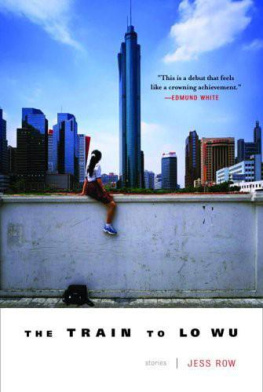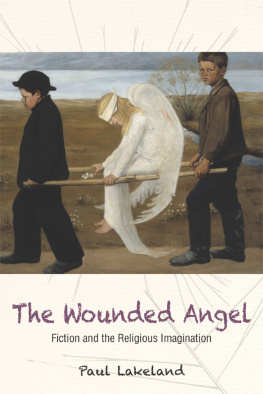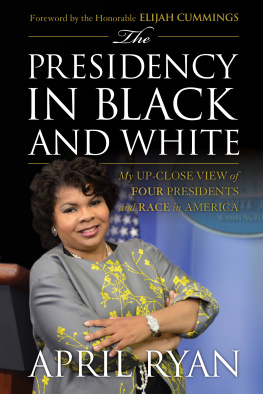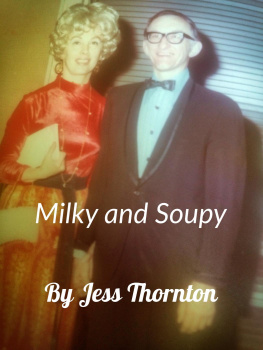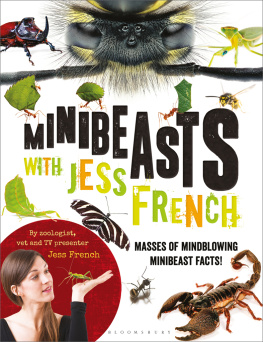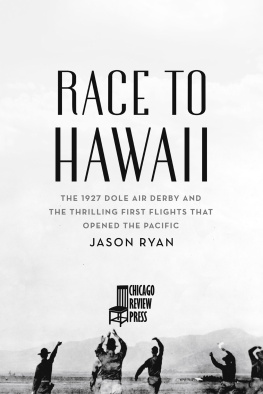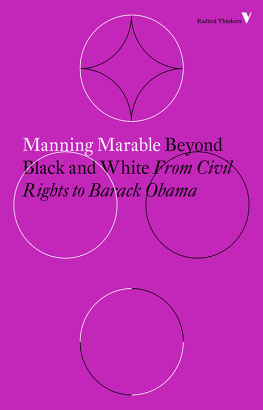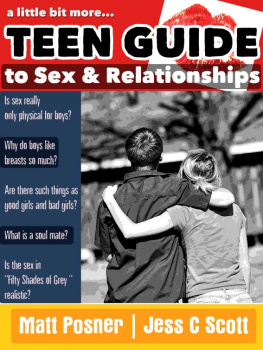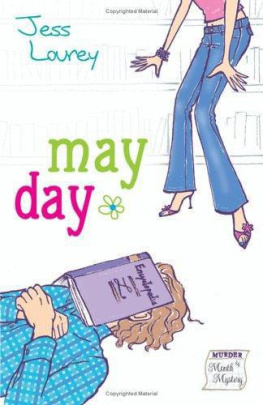Jess Row - White Flights: Race, Fiction, and the American Imagination
Here you can read online Jess Row - White Flights: Race, Fiction, and the American Imagination full text of the book (entire story) in english for free. Download pdf and epub, get meaning, cover and reviews about this ebook. year: 2019, publisher: Graywolf Press, genre: Art. Description of the work, (preface) as well as reviews are available. Best literature library LitArk.com created for fans of good reading and offers a wide selection of genres:
Romance novel
Science fiction
Adventure
Detective
Science
History
Home and family
Prose
Art
Politics
Computer
Non-fiction
Religion
Business
Children
Humor
Choose a favorite category and find really read worthwhile books. Enjoy immersion in the world of imagination, feel the emotions of the characters or learn something new for yourself, make an fascinating discovery.
White Flights: Race, Fiction, and the American Imagination: summary, description and annotation
We offer to read an annotation, description, summary or preface (depends on what the author of the book "White Flights: Race, Fiction, and the American Imagination" wrote himself). If you haven't found the necessary information about the book — write in the comments, we will try to find it.
White Flights: Race, Fiction, and the American Imagination — read online for free the complete book (whole text) full work
Below is the text of the book, divided by pages. System saving the place of the last page read, allows you to conveniently read the book "White Flights: Race, Fiction, and the American Imagination" online for free, without having to search again every time where you left off. Put a bookmark, and you can go to the page where you finished reading at any time.
Font size:
Interval:
Bookmark:
Advance praise for White Flights
In White Flights Jess Row performs a much-needed analysis of white American writers attempts to evade the complexities of racial representation and racism in the US. The landscape of the imagination, like the country itself, he argues with rich insight and brio, is neither equal nor free.
John Keene, author of Counternarratives
White Flights confirms Jess Rows ability to quickly grasp large political issues and conflicts; it shows, too, a reflexive distrust of received wisdom, and a bracing honesty. I am convinced that it will be a major literary and intellectual intervention, clarifying the real stakes in what we too complacently call identity politics and insisting on a fresh reckoning with American history and its main beneficiaries.
Pankaj Mishra, author of Age of Anger and Temptations of the West
In White Flights Jess Row searches the unconscious construction of his own whiteness consciously, as something of a literary game with the most serious stakes and yet played with a seemingly light touch. The essays here are like snakes dancing along the blade of a knife, or tightrope walkers bursting into laughter, mid-rope, or the deep plunge into a topic that takes you, thrillingly, out the other side, to places familiar and strange at the same time. These are brilliant, sweeping, intimate delightsand afterward, you may never read the same way again.
Alexander Chee, author of The Queen of the Night and How to Write An Autobiographical Novel
With care and complexity, White Flights furthers a crucial national conversation on whiteness, white spaces, and racism, and how these concepts define American literature. More than just provoking thought, this book will provoke dialogue and discussionexactly what we all need.
Beth Bich Minh Nguyen, author of Pioneer Girl and Stealing Buddhas Dinner
White Flights is required reading for white readers and white writers. The rest of us can learn something, too, about how whiteness is not just a privilege, a norm, and a benefit, but also a burden. With these superb essays, Jess Row reveals himself to be an insightful critic of both literature and the American condition.
Viet Thanh Nguyen, author of The Refugees and The Sympathizer
Gutsy, capable, urgent, innovative, and timely: these elegant essays think and write across lines of race in American culture. The perception of whiteness in this country is charged and complex, and the authors project is to address these complexities and further the critical conversation. The essays move the ball down the field, mixing personal humility with a deep and resourceful reading of critical race theory, literature, and American history. Row examines strenuous naivet, white flights of fancy, and unreconciled and avoidant imagination, and suggests an intriguing concept of reparative writing. The breadth and erudition of this project are convincing. Fully realized, this will be a soul-searching treatise on the way race underpins our stories in life and on the page.
Judges citation, Whiting Creative Nonfiction Grant

Also by Jess Row
Your Face in Mine
Nobody Ever Gets Lost
The Train to Lo Wu

Copyright 2019 by Jess Row
The author and Graywolf Press have provided this e-book to you for your personal use only. You may not make this e-book publicly available in any way. Copyright infringement is against the law. If you believe the copy of this e-book you are reading infringes on the authors copyright, please notify Graywolf Press at: us.macmillanusa.com/piracy.
This publication is made possible, in part, by the voters of Minnesota through a Minnesota State Arts Board Operating Support grant, thanks to a legislative appropriation from the arts and cultural heritage fund. Significant support has also been provided by Target, the McKnight Foundation, the Lannan Foundation, the Amazon Literary Partnership, and other generous contributions from foundations, corporations, and individuals. To these organizations and individuals we offer our heartfelt thanks.

Published by Graywolf Press
250 Third Avenue North, Suite 600
Minneapolis, Minnesota 55401
All rights reserved.
www.graywolfpress.org
Published in the United States of America
ISBN 978-1-55597-832-7
Ebook ISBN 978-1-55597-881-5
2 4 6 8 9 7 5 3 1
First Graywolf Printing, 2019
Library of Congress Control Number: 2018958158
Cover design: Oliver Munday
For Mina and Asa
Is this the
first time
Ive seen the color of this room?
Is this the
first time
Ive seen the size of these walls?
Rites of Spring, Hidden Wheel
Writing and reading require being mindful of the places where imagination sabotages itself, locks its own gates, pollutes its vision.
Toni Morrison
To a greater or lesser degree every man is suspended on narratives , on novels, which reveal to him the multiplicity of life. Only these narratives, often read in a trance, situate him before his fate. So we ought to seek passionately what narratives might be. How to orient the effort through which the novel renews, or, better, perpetuates itself.
Georges Bataille
This is not freedom, but a question of how to work the trap that one is inevitably in.
Judith Butler
One day the head cook in the monastery of Fugai Ekun was cutting vegetables in the garden for dinner, and without noticing it, sliced off the head of a snake, which fell into his vegetable basket. Later, he emptied the basket into the soup pot. The monks thought the soup had never tasted more delicious, but Fugai was suspicious. Probing with his chopsticks in the soup pot, he lifted out the head of the snake and asked the cook indignantly, What is this?
Oh, thank you, Roshi, the cook said immediately, took the head of the snake with his fingers, and ate it.
These essays are about race in the imaginative life of Americans from the end of the civil rights era to the present. Theyre about fiction in the proper sense of the wordnovels, short stories, films, playsand also the larger, boundaryless, improper sense, in which our collective life is a series of overlapping fictions, fantasies, dream states. Theyre about the ways fiction in the first sense reflects and sustains the fictions of the second.
Because it couldnt be otherwisebecause I couldnt write it any other waythis is also a book about the dimensions and complications of my own racial identity, and particularly about my life as a white writer, and how I learned, without consciously learning it, to represent whiteness and identify with whiteness, while at the same time believing I was practicing something called imaginative freedom. Im trying to undertake what might be called white autoethnographya way of writing that should never take itself entirely seriously. Because whiteness is a category that is both laughable and lethal. Writing about race as a white man means I have to move beyond the understanding of what words like sincerity, earnestness, and dignity mean. The worst thing a book like this could be is polite.
And why write it in the first place? Why add another book attached to the adjective white to the pile? Consider this, as a strange and possibly unacceptable starting point: one of my favorite statements about the purpose of art, from the liner notes to the Operation Ivy album Energy , recorded in 1989, written by the singer Jesse Michaels (incidentally, son of the novelist Leonard Michaels):
Font size:
Interval:
Bookmark:
Similar books «White Flights: Race, Fiction, and the American Imagination»
Look at similar books to White Flights: Race, Fiction, and the American Imagination. We have selected literature similar in name and meaning in the hope of providing readers with more options to find new, interesting, not yet read works.
Discussion, reviews of the book White Flights: Race, Fiction, and the American Imagination and just readers' own opinions. Leave your comments, write what you think about the work, its meaning or the main characters. Specify what exactly you liked and what you didn't like, and why you think so.


